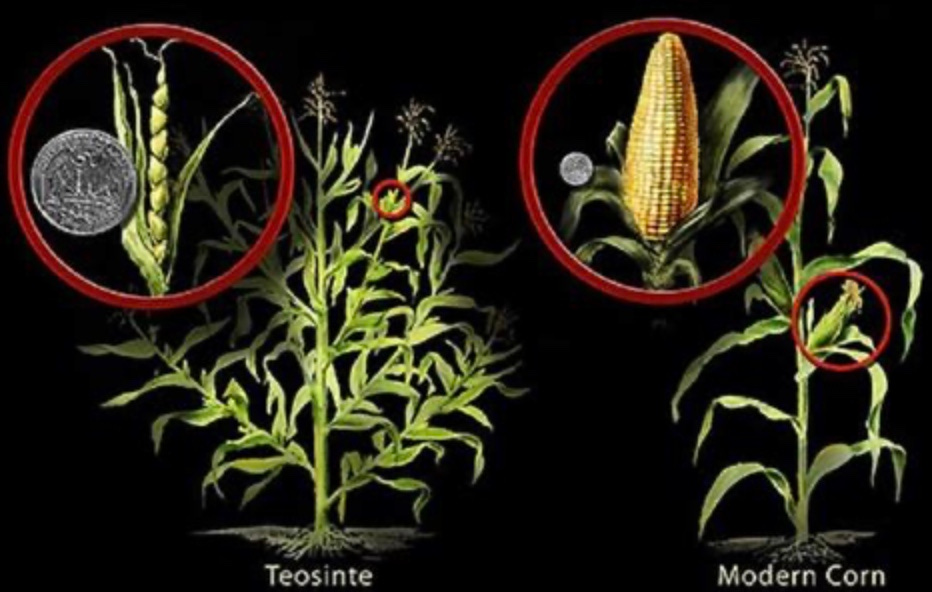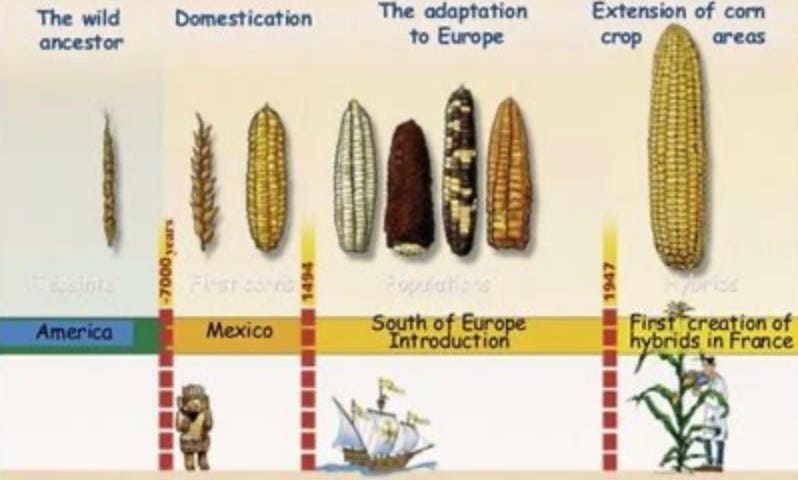Corn: The First True GMO!
Subconscious Fat on Corn!

Mr. Skeptical leans back, one eyebrow raised.
"You're seriously telling me corn was the first GMO?"
I ignore Mr. Skeptical’s irritating question but look straight at him and say, “GMO, in case you don’t know, means genetically modified organism.
Subconscious Fat at 30,000 Feet
Mr. Skeptical clenches his teeth in frustration. “I know what it means. Now, why did you come up with the dumb idea that it’s the first GMO?”
I suppress a smile, for I’ll admit I love to irritate him. “Corn didn’t look anything like what we eat today. It used to be this scraggly, pathetic grass called teosinte with just a few kernels. Humans selectively bred it for thousands of years to create the golden monstrosity we now call corn.”

Mr. Skeptical scoffs. “That’s not a GMO. That’s just selective breeding. You can’t call that genetic modification like they do in a lab with CRISPR.”
I hold up a finger. “It’s the intent that matters. Humans altered the genetics of a plant to suit their needs. Just because it took thousands of years instead of a few hours in a lab doesn’t mean it’s not genetic modification.”
Subconscious Fat at 10,000 Feet
Mr. Skeptical waves his hand dismissively. “But it wasn’t artificial in the modern sense. It was natural—just sped up evolution.”
“Which is exactly the point,” I say. “Nature wouldn’t have made corn on its own. Humans created it, and now it can’t even survive without us. That’s peak genetic dependency. You want a GMO? Corn’s the OG.”
Mr. Skeptical smirks. “Fine, let’s say you’re right. But are you really going to praise corn? You’re the guy who thinks plants are out to kill us.”
Subconscious Fat at Eye-Level
I chuckle. “Plants don’t want to kill us but want to survive. Ah, now we’re getting to it. Corn was a necessary evil. It probably saved millions of human lives from starvation. But let’s be honest—it only became necessary because we killed off all the mammoths. Once the megafauna were gone, what choice did we have?”

Mr. Skeptical narrows his eyes. “So it’s a survival food, not a success story?”
“Exactly. Corn didn’t rise because it was better. It rose because we were desperate. You kill off enough edible animals, and suddenly mushy yellow kernels start looking good.”
Mr. Skeptical chuckles. “You know, for a guy who hates plants, you sure talk about them a lot.”
I grin. “Even a meathead can admit when plants served a purpose—just don’t ask me to eat them now.”
Practical Suggestions and Conclusions
Mr. Skeptical leans in, half-smiling. “So what are you saying? We should all thank corn and move on?”
“Kind of. It’s about understanding context. Corn saved lives but also marked a shift from hunting to farming, from freedom to food dependency. That’s not just agriculture—it’s anthropology.”
“So you’re not anti-corn?”
“I’m anti-illusion. Corn wasn’t a miracle. It was a patch. A smart, desperate patch. If we want to learn from history, we’ve got to stop romanticizing survival foods as if they were peak nutrition. Corn is just (I raise my hands showing air quotes.) “filler food.”
Mr. Skeptical sips his sugary coffee. “And let me guess—you’ll be sticking to steak?”
I raise my buttered coffee cup. “To the real original diet.”
Be aware.
Other links related to this post:
Everything, Everywhere, All at Once
Evolution: It Seeps Into Everything
Omnivores Survive, But Carnivores Thrive PS Links on LinkedIn, Facebook, and Instagram. Full disclosure: Chat GPT was used to research and enhance this post.




